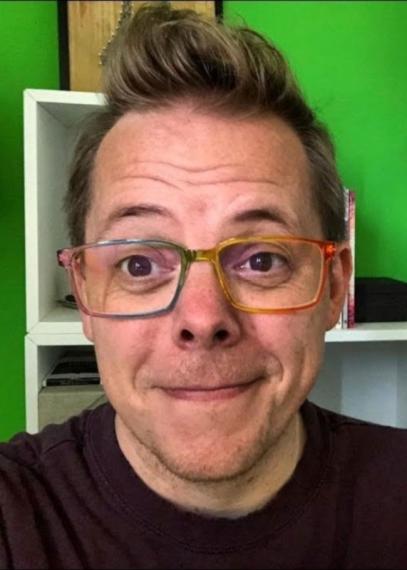Daniel Gillis (he/him/his)

Education and Employment Background
Prof. Daniel Gillis received his PhD in Statistics from the University of Guelph in 2010, prior to joining the School of Computer Science in 2011. He is co-founder of Farm to Fork, a project that uses computer science to reduce hunger. Alongside Prof. Shoshanah Jacobs, Gillis co-created ICON, a transdisciplinary classroom that brings students from across campus to address social challenges. He is co-founder of GuelphHacks and the ImproveLifeChallenge, and is a member of the Royal City Science steering committee, the Centre for Public Health and Zoonoses, the Guelph Institute for Environmental Research, and the One Health Institute.
Research Themes
Gillis has spent the bulk of his training and career working on transdisciplinary teams which have focused on public health assessment and natural resource management. His research interests span statistics, computer science, biology, pedagogy, and community-engaged scholarship. Key research themes include:
- Population modelling for ecological and public health risk assessment. Gillis looks to develop new methods to better understand and manage populations of wild animals considering anthropogenic risks and to evaluate the impacts on human health. Recent research has included the use of join-point regression models to improve population modelling, spatial-temporal Poisson Mixtures for health risk assessment, and the development of a novel Agent-Based Model (ABM) known as an environmental-ABM.
- Community-engaged software design. The eNuk program is an integrated environment and health monitoring program designed by, with, and for Inuit in Rigolet, Nunatsiavut, Labrador. The goal of the program is to streamline and incorporate the community’s existing research efforts into a comprehensive strategy for monitoring and responding to environmental and health indicators of climate change.
- Bridging the digital divide in Canada. Connectivity in remote, rural, and Indigenous communities in Canada and around the world has led to a digital divide where millions lack access to online resources and the digital economy due to insufficient or non-existent infrastructure. The Wireless Mobile Mesh Network research program is a five-year interdisciplinary program that includes Indigenous and non-Indigenous researchers. The goal of the research program is to study the use of wireless mobile mesh technology to bridge the digital divide in Canada.
- Transdisciplinary pedagogy and higher education. The Ideas Congress (ICON) transdisciplinary classroom brings together students from all years and disciplines to work with and learn from community partners while developing solutions to broad social issues. The program consists of workshops, team building activities, and activities to foster knowledge translation and transfer. The goal is to teach students valuable interpersonal, team, and communication skills, while fostering innovative ideas for today’s pressing challenges.
Highlights
- Ontario Confederation of University Faculty Associations Teaching Award, 2019
- Awarded $2.13M 5-year MITACS Accelerate Grant, 2018
- Listed as one of 100 Voices for Canadian Science Communication by Science Borealis, 2016
Media Coverage
Bridging the Digital Divide
- Betakit Startup News & Innovation: U of Guelph, Left Investing $2.13 Million In RightMesh Project Improving Northern Connectivity
- Entrepreneur: How a Small Research Expedition in Northern Canada Revealed the Global Potential of Mesh Networks
- BBC World Service – Click: RightMesh Expands Connectivity for Remote Areas
- Motherboard [Vice]: A Meshnet Will Help This Inuit Town Monitor The Effects Of Climate Change
- VICE: Open Access Government: Implementing An Environment And Health Program With Inuit In Rigolet
- CBC Spark: Labrador Inuit Develop an App to Track Changes in the Land
Awards and Accolades
- Guelph Mercury Tribune: Good, Meaningful Work: U of Guelph Prof Brings Class to Community
- Guelph Today: Guelph U Prof Recognized As One Of Ontario’s Most Outstanding University Teachers
- Guelph Today: University Volunteers Recognized For Community Contributions
- Guelph Mercury: 40 Under 40
Academic and Industry Partnerships
Through his research, Gillis has engaged in collaborative projects with the Public Health Agency of Canada, Statistics Canada, Health Canada, Environment Canada, B.C. Cancer Agency, the Government of Brazil, the Saugeen Ojibway First Nations, McGill University, Laurentian University, and numerous departments within the UG including Integrative Biology, Cell Biology, the O.V.C.’s Biomedical Sciences, and the School of Engineering. Most recently he has been working with the Inuit of Rigolet, Nunatsiavut, Labrador.